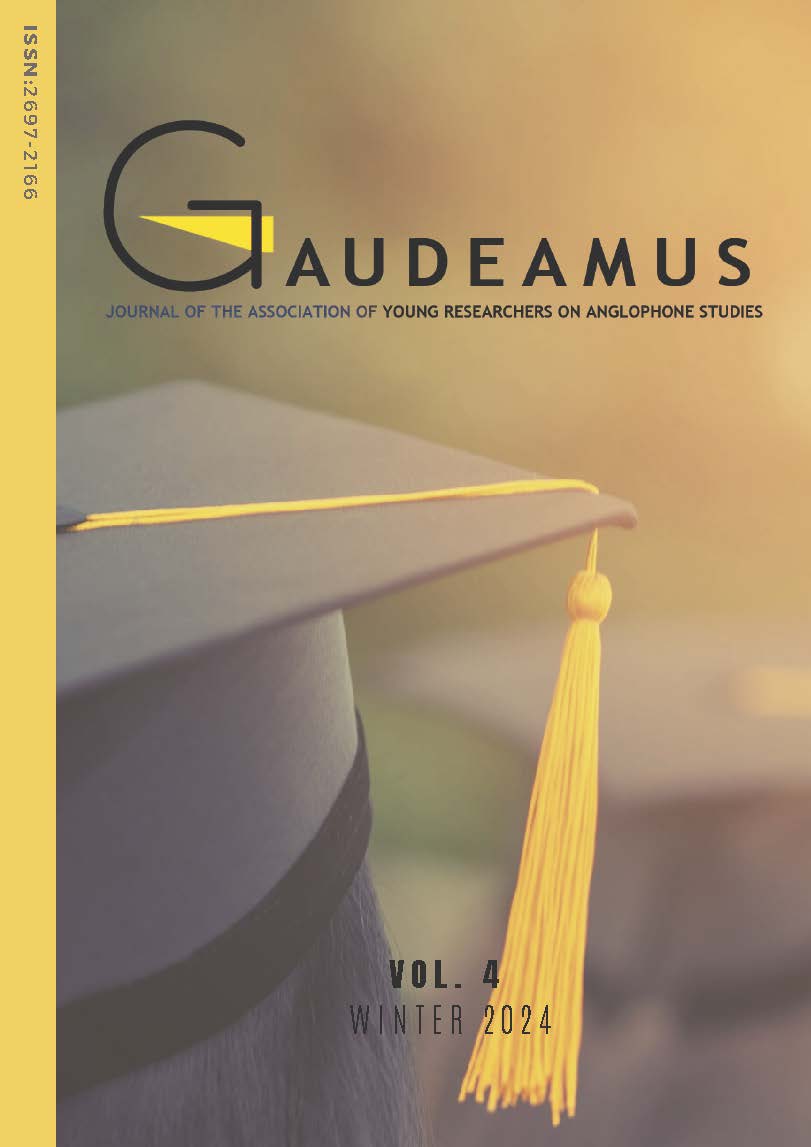Abstract
This article aims to explore the liminal spaces portrayed in Akwaeke Emezi’s (they/them) memoir Dear Senthuran. In the current globalized world, mobility of African writers to the West has produced a literature that some critics label as “Afropolitanism”. Firstly, I trace the origin and implications of this term, which presents some issues that must be interrogated. Secondly, considering the example of other diaspora writers, I seek to analyze the territories in which Emezi imagines and creates their writings. I argue that these spaces, following Homi Bhabha’s postcolonial analysis of “Houses of Fiction”, act as locus communale, places in-between for the unhomely —the displaced, the refugees (political or social), the discriminated. Akwaeke Emezi identifies as a non-gendered God with multiple identities, an Igbo spirit who was “born to die”. Therefore, home is not perceived as a place of origin nor the place where they reside. Neither it is a place recreated from memories nor a place they observe and deploy in their writings. Instead, corporeal, fixed spaces are a form of delimitation and submission to the colonial discourses that Emezi tries to revert in their texts. Their queer identity does not fit into modern Nigerian society as it has lost touch with Igbo’s systems of values, their condition of black migrant does not allow them to feel at ease in the United States, and their godly identities surpass the physical need of belonging to a specific area. By denying the terrestrial links, they express their thirst to be in constant movement, in literal, continuous transformation. Thus, their existence is based in a flux, in liminal spaces, and by sharing their experience in the form of writing, they provide a safe refuge for those living in the cultural periphery.
References
Abou-Agag, Naglaa. 2021. “Homi Bhabha’s Third Space and Neocolonialism”. SSRN Electronic Journal 9, no. 3 (2021): 25–43. DOI: 10.2139/ssrn.3820037.
Ede, Amatoritsero. ‘Afropolitan Genealogies’. African Diaspora 11, no. 1–2 (2018): 35–52. DOI: 10.1163/18725465- 01101010.
Bhabha, Homi. ‘The World and the Home’. Social Text, no. 31/32 (1992): 141–53. DOI: 10.2307/466222.
Bhabha, Homi K. The Location of Culture. Routledge, 1994.
Emezi, Akwaeke. 2018a. Freshwater. Faber & Faber.
———. 2018b. “Transition. My surgeries were a bridge across realities, a spirit customizing its vessel to reflect its nature” The Cut <https://www.thecut.com/2018/01/writer-and-artist-akwaeke-emezi-gender-transition-and-ogbanje.html>
[Accesed on December 7, 2022].
———. 2019. “My America: Akwaeke Emezi” American Writers Museum <https://americanwritersmuseum.org/my-america- akwaeke-emezi/> [Accesed on January 2, 2023]
———. 2020. “My Spirit Burns Through This Body” The Paris Review
<https://www.theparisreview.org/blog/2020/12/10/my-spirit- burns-through-this-body/> [Accesed on February 20, 2023]
———. 2021. Dear Senthuran. Faber & Faber, 2021.
———. 2022. Content Warning: Everything. COPPER CANYON
PR.
———. Emezi, Akwaeke. Akwaeke webpage. <https://www.akwaeke.com/> [Accesed on February 22, 2023]
Gehrmann, Susanne. 2016. “Cosmopolitanism with African Roots. Afropolitanism’s Ambivalent Mobilities”. Journal of African Cultural Studies 28, no. 1: 61–72.
Mohammed, Azeenarh, Chitra Nagarajan, and Rafeeat Aliyu, eds. 2018. She Called Me Woman. Cassava Republic Press.
Musila, Grace A. 2016. “Part-Time Africans, Europolitans and Africa Lite”. Journal of African Cultural Studies 28, no. 1: 109–13. DOI: 10.4324/9781315458854-8.
Newgas, Jessica. 2019. “Life after Trauma: Spirit Children in Fictions of the African Diaspora (Part 1): Akwaeke Emezi’s Freshwater”. African Studies Bulletin 81.
Fasselt, Rebecca. 2015. “I’m Not Afropolitan — I’m of the Continent: A Conversation with Yewande Omotoso”. The Journal of Commonwealth Literature 50, no. 2: 231–46. DOI: 10.1177/0021989414552922.
Pucherova, Dobrota. 2018. “Afropolitan Narratives and Empathy: Migrant Identities in Chimamanda Ngozi Adichie’s Americanah and Sefi Atta’s A Bit of Difference”. Human Affairs 28, no. 4: 406–16. DOI: 10.1515/humaff-2018-0033.
———. 2022. Feminism and Modernity in Anglophone African Women’s Writing. A 21st-Century Global Context. Routledge. DOI: 10.4324/9781003255932

